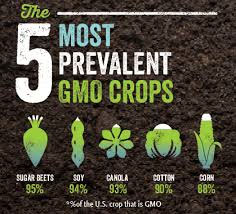In a demonstration of how much GMO companies are willing to spend, they poured over $1 million dollars into Oregon to prevent two counties from banning cultivation of GMO crops.
But that didn’t sway voters in Jackson and Josephine counties, where bans won in referendums 66-34 and 58-41, respectively.
It’s about protecting seed sovereignty and local control of food systems, and about healthy ecosystems, say the organizers.
At the heart of the ban is Monsanto’s propensity to sue farmers if they plant its patented GMO seeds. The fact is, GMO pollen drifts to other farms, putting every farmer in jeopardy if s/he unwittingly saves seeds for another crop.
A gust of wind, can spread pollen from a GMO crop for miles, making seed from the traditional crops it touches illegal to save for next year’s planting and illegal to sell under U.S. patent law, say Our Family Farms Coalition.
"We can’t plant beets or chard these days because of the threat of GMO sugar beets contaminating our crops," say the Gosswiller family, who farm in Jackson County. "I had to destroy $4400 of seed stock after GMO sugar beet pollen trespassed on my fields and made my chard seed crop unsellable," says Chuck Burr, another farmer.

"The federal government and state government have twiddled their thumbs as Monsanto and the other chemical giants have been allowed to sell a product that spreads onto family farms and can contaminate the seeds we depend on for next year’s crop," says Elise Higley, campaign director for Our Family Farms Coalition.
GMO crops have also been banned in these counties: Santa Cruz, Trinity, Marin and Mendocino in California; San Juan in Washington state; Oaho and Hawaii; and the state of Vermont.
The next step is an Oregon state referendum this fall on GMO food labels, led by Oregon Right to Know.
March Against Monsanto takes place worldwide this Saturday and a new organization has formed, Global GMO Free Coalition, which unites 60 groups working around the world.
GMO Lawn Grass?
The fight against new GMO crops continues as the USDA considers approving the first GMO tree and even GMO Kentucky Bluegrass, the mostly widely planted grass for lawns.
Even without being genetically modified, eucalyptus trees are invasive. "Planned for deployment across the U.S. South, it would irrevocably devastate native ecosystems, exacerbate droughts and lead to catastrophic firestorms. This must be stopped before it is too late," says Keith Brunner with the Global Justice Equality Project.
For lawn grass, Monsanto and Scotts are working together, already approved by the USDA without any testing. Grass seed is notorious for spreading, but since no labels are required, it will be sold without anyone knowing what they’re buying.
"As these seeds spread and more and more grass takes up that genetic trait, we’ll find organic farmers who want to grass feed their beef, can’t do it because their grass is genetically modified, which is prohibited in organic standards," warns Bill Duesing of the Northeast Organic Farming Association.
Even more troubling is the fact that once Scotts Roundup Ready grass hits the market, it will lead to a dramatic increase in the use of Roundup, already the most widely used – and potentially harmful-herbicide in the world.
Glyphosate, the active ingredient in Roundup is now considered the "most biologically disruptive chemical in our environment," linked to a litany of health disorders and diseases such as Parkinson’s, cancer and autism.
Scott is currently testing the product at employees’ homes and plans to launch for commercial applications next year and the consumer market in 2016. Scott is Monanto’s exclusive marketing and distribution agent of Roundup.
This year, 37 labeling bills have been introduced in 21 states, and Hawaii voted against allowing GMO crops to be cultivated. It was recently voted down twice in the US Senate.
Read our article, DARK Act Anti-GMO Labeling Bill Introduced in Congress, about national legislation that would make these efforts illegal.
Tell Scotts to drop the idea of GMO grass:
